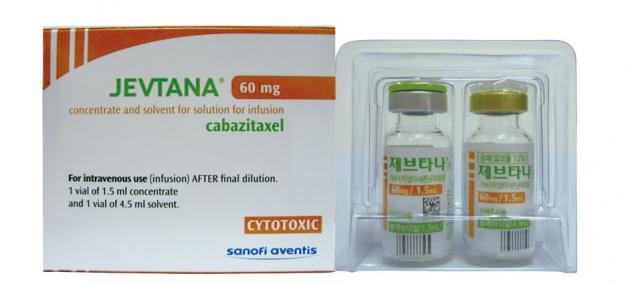
Sanofi Genzyme Korea said Thursday that it got reimbursement for its prostate cancer drug Jevtana (ingredient: cabazitaxel) as a second-line therapy starting in May.
Prostate cancer patients will pay 39,900 won ($37) per vial of Jevtana with the coverage, Sanofi Genzyme said.
“Prostate cancer is the second most common cancer in the world among men, and cancer has been increasingly prevalent in Korea,” said Dr. Amit Bahl from the Bristol Haematology and Oncology Centre, University Hospitals Bristol NHS Foundation Trust, at a news conference in Seoul Thursday.
“People whose cancer progresses to a hormone-refractory castration-resistant stage have a high likelihood of dying within 16-20 months, requiring a therapy to prolong survival,” he added.
“Jevtana is the first anticancer drug to have improved survival rates in patients with metastatic castration-resistant prostate cancer who have developed the disease after chemotherapy, including docetaxel. This insurance benefit significantly reduces the economic burden on patients with prostate cancer,” said Park Hee-kyung, CEO of Sanofi Genzyme Korea.
Jevtana will be reimbursed when used as a second-line therapy with prednisolone for metastatic castration-resistant prostate cancer patients who received chemotherapy that includes docetaxel.
The anticancer drug acts directly on intracellular microtubules to inhibit the differentiation of cancer cells. Jevtana has been shown to improve survival rate in patients with metastatic castration-resistant prostate cancer, Sanofi said.
The reimbursement decision was based on results of a multinational phase 3 TROPIC study that pitted a Jevtana and prednisolone combination against a mitoxantrone-prednisolone combination therapy.
Results demonstrated that the Jevtana arm slashed the risk of death by 30 percent while median overall survival was around three months longer than the comparison group at 15.1 months for those taking Jevtana.
The therapy is recommended as a second-line treatment option for metastatic castration-resistant prostate cancer after docetaxel in the guidelines put forth by the European Association of Urology and the National Comprehensive Cancer Network (NCCN).

